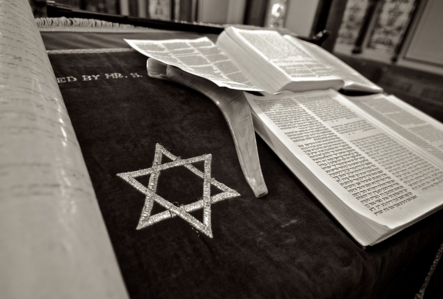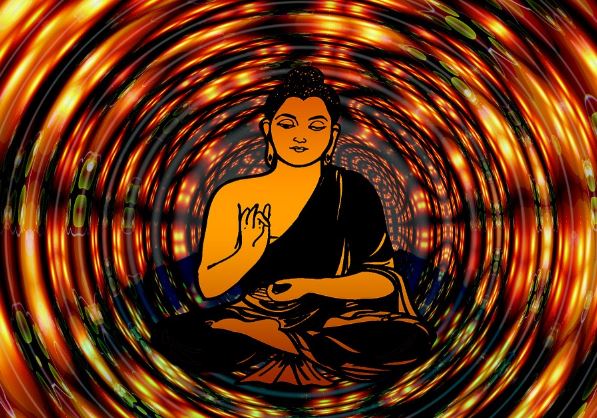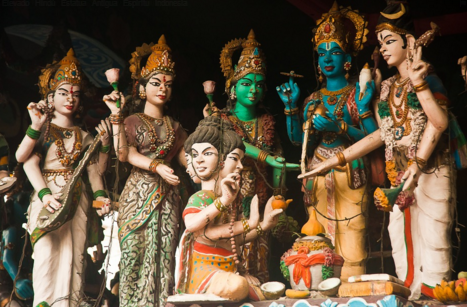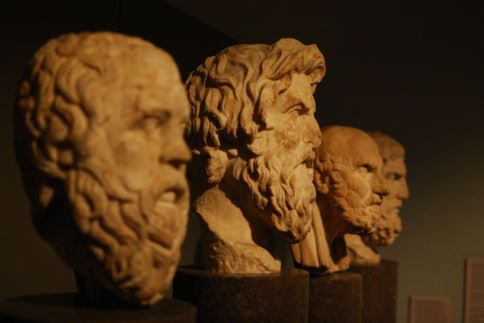Do Jews believe in an afterlife? Judaism in general does not accept reincarnation. The main reason is because it is not mentioned in the Holy Scriptures (the Tanakh and the Talmud). In this article we will consider different views on the jewish afterlife, analyze the orthodox views and also alternative opinions to fully understand why some Jews believe in reincarnation, and others do not.
Jewish view of Afterlife
Theosophy says that reincarnation is mentioned, but in a veiled and oral tradition. In the Talmud there is constant talk of the doctrine of reincarnation calling it Gilgol Neshomes Din. This expression means “the judgment of the revolutions of souls”.
Reincarnation is properly called metempsychosis. It is the belief that the soul of the person who dies is reborn in another body. This belief involves a dualistic conception of man that considers the body and soul as two separate things. According to this doctrine, the soul is the only truth, while the body is the place of temporary confinement of the soul, where it remains locked until completely purified of its temporary bonds. According to this doctrine when the soul has failed to completely purify in this life, it incarnates in another body and so on until finally ends its purification process.
Do Jews believe in reincarnation?

Judaism does not consider Satan as an evil angel, therefore it does not consider hell as a place intended for the “evil”. However, because of the fact that there is no hell in Judaism, there is the idea that we trust God to punish the evil. But it is not known how. Reincarnation then appears as a great opportunity to answer to this mystery.
It should be made clear that although the doctrine of reincarnation is accepted in many other religions, it is totally alien to traditional Judaism. The doctrine of transmigration of souls (gilgul) according to some was introduced by the Kabbalah, which elaborated various theories regarding the different types of souls and their fate after death. According to the Kabbalah, man’s task is to complete the rectification or perfection of the cosmos fulfilling the precepts with due mystical intention, so that trapped sparks are released and restored back to their divine source. When this process is complete, the redemption will come. If you do not complete this task in this life, it will reincarnate to continue its work in another body.
Reincarnation is not part of traditional Judaism. Most of the Jews never believed in it. Not in the Hebrew Bible or the Talmud or Root exegesis of Ibn Ezra nor Abarbanel. Neither the Tosafists or the hajala. Its first mention dates from the twelfth century in southern France, in the mystical book Habahir Keller. Its inclusion in Judaism is late, partial and marginal.
The conception of divine justice that rewards or punishes each according to their deeds is part of God’s revelation in the Scripture, accepted and defended by rabbis of all times. But reincarnation is neglected since the soul enters an absurd process of life and death infinitely delaying that meeting with the Creator and thus the responsibility for its actions. According to Rambam, one of the greatest Jewish philosophers, this retribution occurs immediately after death, therefore there are not many chances of returning to live on this Earth or in successive existences atone for offenses committed in a “previous life”: “God repays man according to his actions. Rewards the good and punishes the evil… both reward and punishment are given in the World to Come which is completely spiritual”.
So, do Jews believe in reincarnation today? Unfortunately, the doctrine of reincarnation is accepted by many Jews these days. Some deny it but they give freedom to believe in it or not, as they say it does not go against the foundations of Judaism.
There is not a unique Jewish view of afterlife. So says a rabbi: “Reincarnation is an individual belief (or group belief in some cases), as disbelief in it is. It is a belief of restricted nature, and does not undermine the general principles (Torah and Halacha), nor is it mandatory to share. In Judaism there is no dogma, nor blind faith; but there are established laws that must be fully complied with. Therefore the Jews who believe in reincarnation, are within Judaism, as those who believe that at death the soul returns to the Source of Eternal Life”.
This way of thinking leads to a wide range of opinions: “Believing in reincarnation is another way to explain the traditional Jewish belief that every Jewish soul in history was present at Sinai and accepted the Covenant with God”.
It is wrong to say that the belief in reincarnation does not undermine the principles of Judaism, because as we said before it is outside of the Scripture and Tradition. The idea of returning after death to this land again and again is far from the hope that inspired Abraham, Jacob and Moses. They died “waiting” to join God at resurrection (since the idea of seeing God immediately after death did not exist yet), and not with the hope to reincarnate on Earth again. Recounting the death of Abraham the Scripture says: “Then Abraham breathed his last and died at a good old age, an old man and full of years; and he was gathered to his people” (some translate “his parents”), a very frequent expression that in turn expressed his faith in immortality.
Reincarnation is totally opposed to the resurrection of the dead. While some rabbis try to reconcile the two faiths, you can not accept the reincarnation without denying the resurrection.
In reincarnation there is no mention of God or the weight of eternity with the free decisions of men is taken into account. If there are thousands of possibilities to relive, why strive to be good, why love, respect, why aspire to great ideals or projects? In short, what is the purpose of life? The man becomes his own savior, because it is under its new good deeds that redeems the past sins… and if he doesn’t do it in a second life, he has even more possibilities.
Therefore reincarnation it is clearly contrary to the Christian doctrine, opposing to two such fundamental truths as redemption and resurrection, present not only in the New Testament but also in the Old. Both Testaments, the Church teaches, are the word of God and none should be rejected.

St. Paul says in his Letter to the Hebrews: “And just as it is appointed for man to die once, and after that comes judgment.” (Heb 9:27).
Belief in reincarnation is incompatible with faith in Jesus Christ, because in reincarnation there is no salvation: Man returns to the old misery again, redemption does not exist.
John Paul II, referring to the attitude of many today who accept the idea of an afterlife but are skeptics to the truth of faith in the resurrection of Christ says: “Christian revelation is not satisfied with a vague sense of survival, although it appreciates the intimation of immortality expressed in the teaching of some great God-seekers. We can also agree that the idea of reincarnation arose from an intense desire for immortality and from the perception that human life is the “test” in view of an ultimate end, as well as from the need for complete purification in order to attain communion with God. However, reincarnation does not ensure the unique, individual identity of each human creature as the object of God’s personal love, nor the integrity of human existence as “incarnate spirit”.
Do Jews believe in an afterlife? Other points of view
Is there any relationship between Judaism and reincarnation? The theme of reincarnation has been treated with much suspicion; with many people saying it is an issue that is not worth speaking of or that is related to superstition. To clarify all these doubts we interviewed Mr. Isaac Shapiro, who serves as master of Kabbalah for many years.
What is actually reincarnation? How can we be sure that it is real?

Reincarnation, from the Jewish point of view, is called Gilgul Neshamot, the wheel of souls or the souls that are spinning; it is a spiritual, metaphysical and fundamental stand in Judaism. Many people do not know it is deeply associated with Judaism, and is usually related to Eastern philosophies such as Hinduism, where reincarnation is a clearly accepted concept.
What is reincarnation? Here we go to the deepest part of Judaism is the Kabbalah. Reincarnation is part of a larger plan of creation, in this great plan of creation we conceive a higher intelligence, a creative intelligence that we call God or light; or Kabbalistic terms such as Ein Sof. This infinite light creates worlds and human beings for the sole purpose, say the sages, of completely infusing them in love, abundance and fulfillment.
Man somehow becomes a co-creator of reality, a partner of the creator to perfect a small part of creation, which in Kabbalah we call Malchut, referring to the physical world. On the one hand it has a perfect side, as when we look at nature and the human being; but on the other hand there is a side of imperfection, related to human consciousness. We have the possibility of choosing as the creator does: brightness, creativity, life-giving love or otherwise.
Regarding the specific question: Do Jews believe in reincarnation? From the point of view of Judaism, we all have an opportunity to reach perfection, this function of perfecting ourselves, improving our environment and the world is called Tikkun Olam (correction of the world) and it is the reason why it is conceived that every soul has the opportunity to incarnate in different bodies. We can not make these corrections all at once; Therefore, in the course of time, we repeatedly incarnate.

The holy Rabbi Yitzchak Luria Z “L, the Ari Hakadosh stated that people have to reincarnate 125 times. This is complex but it is the desire of our creator; He wants us to come to Him. Sha’ar ha Gilgulim (the door to reincarnation) is a written statement where Rabbi Luria speaks of all the laws of reincarnation, but reincarnation is essentially an opportunity to amend anything that we have not finished correcting in other moments of our existence.
There is no question that the Jewish view of afterlife, creation and the world accepts reincarnation as an indisputable truth; this has not been at ground level so not many people had access to it historically, but there is a prayer, the Shema Yisrael which says that when we are already in bed and about to fall asleep we should recite, we should say we forgive and ask forgiveness to all those who hurt us in this life or in past reincarnations.
Finally, I invite all those who believe to join in spiritual growth. Those of us on that path, we must raise our awareness so that things can get better (consciousness is the world of causes). When we change the world of causes into something bright, that’s an urge to everyone to take an interest in the world, and not be mere observers of how the world may change, but executors, to make this world change for good.
Reincarnation in the Jewish Tradition

According to ancient Jewish traditions, Adam’s soul was reincarnated in David, and because of his sin against Uriah, he will return as the expected Messiah. According to students of the Talmud, the three letters ADM, being the name of the first man, also transform into Adam, David and Messiah. Therefore in the Tanakh (Old Testament) we read: “They will serve Yahweh their God, and David their king, whom I’ll wake up for them,” meaning that David will reincarnate again for the people. Considering the judgment expressed by God upon Adam: “Dust thou art, and unto dust shalt thou return”, Jewish interpreters say that because Adam had sinned, it was necessary for him to reincarnate on Earth to expiate and repair the evil he had committed in his previous existence, so he returned as David and will come back as the Messiah.
The Jews applied the same doctrine to Moses, Seth and Abel. Cain killed Abel and to replace such a loss Lord gave Seth to Adam. He died and was reincarnated in Moses to lead the people, and Adam said Seth was the reincarnation of Abel. Cain died and reincarnated in Yethrokorah, who also died and his soul waited until Abel had come back as Moses, then reincarnated in the Egyptian whom Moses killed. Therefore, Abel returned into the body of Moses, found Cain who was now the Egyptian, and killed him.
Similarly, according to tradition, Bileam, Laban, and Nabal were reincarnations of the single soul or the individuality. It was said that Job was the same person who once was Thara, the father of Abraham, as in the following verse of Job (ix, 21): “Were I perfect, yet would I not know my soul”, meaning that he didn’t recognize himself as Thara.
We must keep in mind all this while also reading Jeremiah (1.5): “Before I formed you in the womb I knew you, before you were born I set you apart; I appointed you as a prophet to the nations.” (William Judge, Theosophical Path Magazine, February 1894)
In contrast, in the Kabbalah, which is the mystical and esoteric school of Judaism, reincarnation is widely affirmed and taught. However, many Jewish religious groups do not accept it because they say they are apocryphal writings (non-canonical scriptures).
Traditionally, religion has a public education (exoteric, spelled with an “x”) intended for the people in general who still has not developed enough knowledge to capture more advanced teaching aspects and therefore are required to be taught in an easier way. Look for example the commandments that Yahweh gave the people of Israel through Moses when its inhabitants were still immature:
- “Thou shalt not murder the innocent.”
- “Thou shalt not steal.”
- “Thou shalt not bear false witness.”
When a father teaches his young children to behave, he usually says: “Do not do this, do not do that,” but as children grow and become teenagers or youths, they are no longer taught in such a simple way. The proof is that today, most of us would not kill, steal, nor slander, even if it was not prohibited. Why? Because we have developed a degree of awareness that makes us feel that’s wrong.
That’s why there is a more esoteric teaching that at first is reserved for the most erudite minds who can understand it, and it gradually stretches to the rest of the people as everyone evolves. And if you study it carefully you will see that the occult teaching is not opposed to the scriptures. It allows to understand it better.
Learn more about reincarnation and Judaism in this video: Reincarnation in the Jewish Tradition
This concludes this article answering the question Do Jews believe in an afterlife? Keep reading this website to learn more about views on reincarnation, and follow us on Facebook and Twitter to receive frequent updates.






